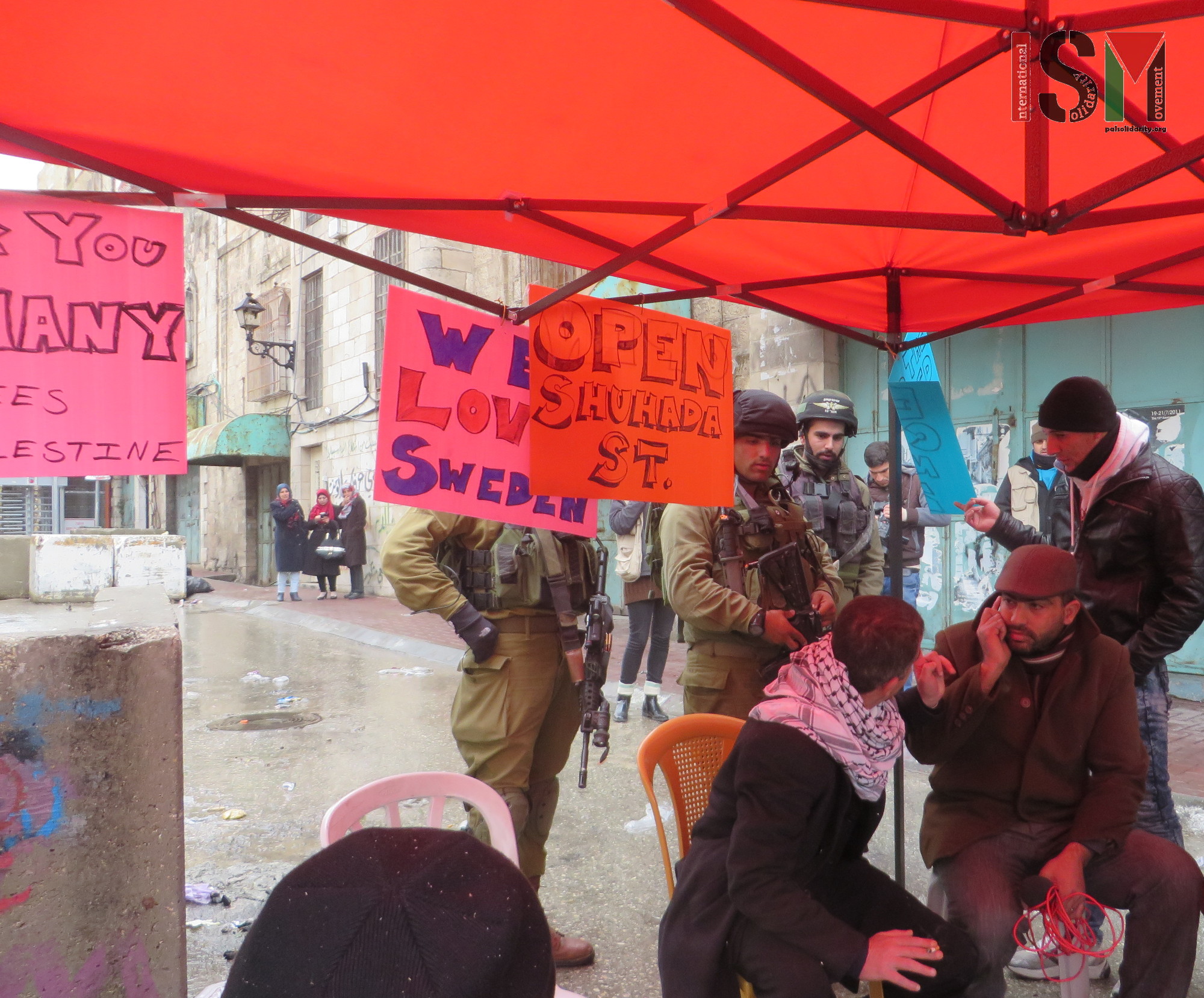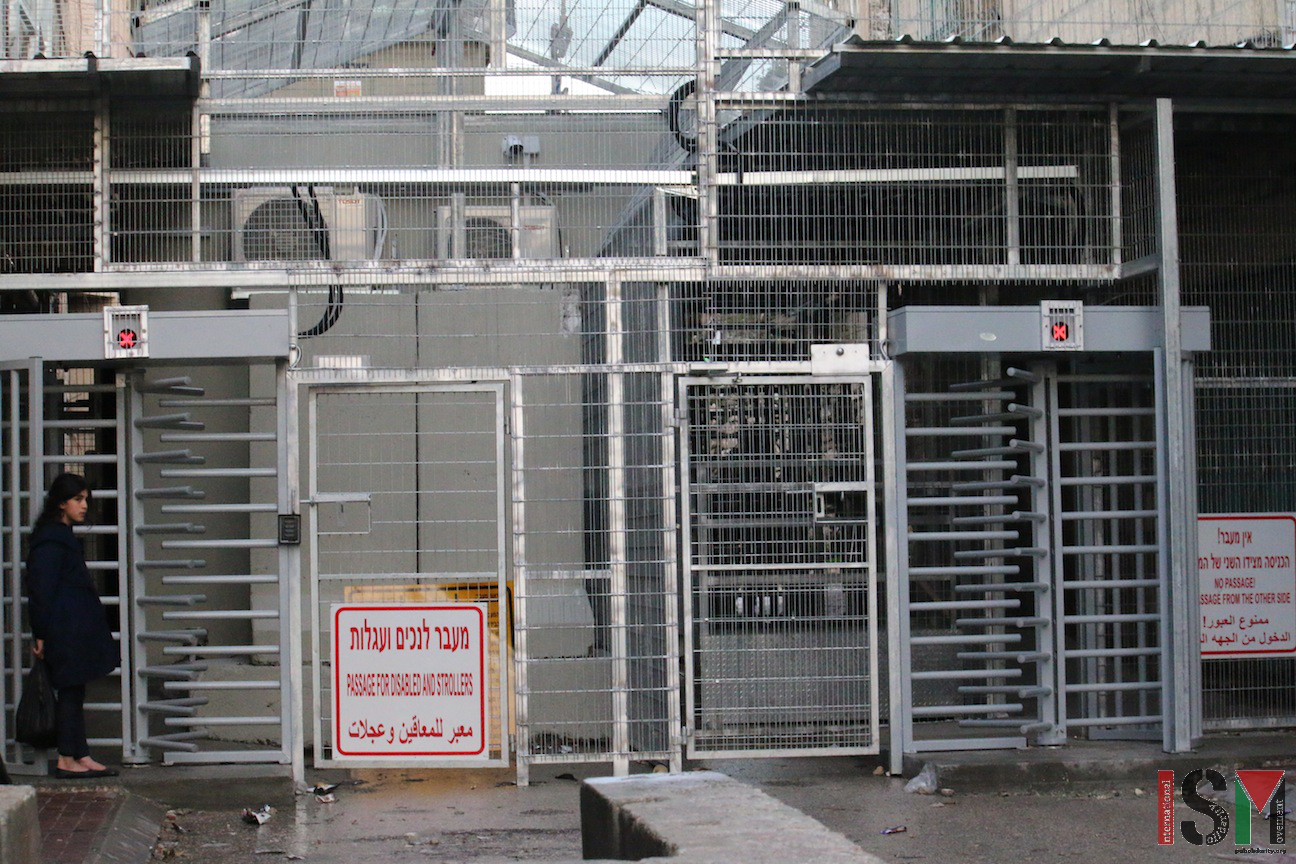Tag: Closed military zone
-
Demonstrators protest closed military zone under threat of Israeli violence
8th February 2016 | International Solidarity Movement, al-Khalil team | Hebron, occupied Palestine On 8th February 2016, Israeli forces threatened to attack a peaceful demonstration in front of Shuhada checkpoint in occupied al-Khalil (Hebron). Protesters gathered at noon to protest the continued closure of the Tel Rumeida neighbourhood, that on the 1st of November 2015…
-
100 days of collective punishment for Hebron residents
7th February 2016 | International Solidarity Movement | Hebron, occupied Palestine February 8th marks one hundred days since Israeli forces declared the Tel Rumeida neighborhood and the adjacent portion of Shuhada Street a “closed military zone,” requiring residents to register with the Israeli military and be assigned numbers in order to be allowed to access…
-
CALL TO ACTION! Join Twitterstorm to #EndHebronMilitaryZone
Three months ago, in the wake of two extrajudicial executions committed by Israeli forces in Tel Rumeida, Israeli military authorities forced Palestinians living in the neighborhood to register and receive numbers in order to be allowed to reach their homes. Everyone else, including family members, media and Palestinian and international human rights defenders are barred…



